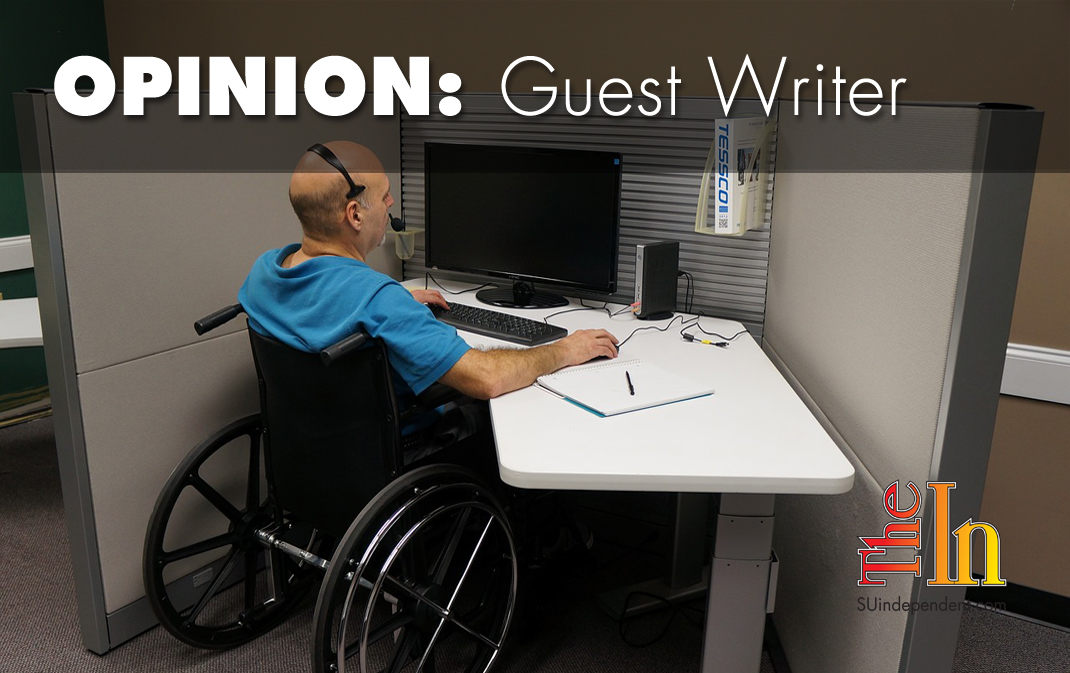
The perfect gift for people with disabilities is a job
By Jennifer Laszlo Mizrahi
Our nation was founded on the principle that anyone who works hard should be able to get ahead in life. People with disabilities deserve an equal opportunity to earn an income, achieve independence, and be included, just like anyone else.
Employment is about a lot more than just a paycheck: It provides a way to contribute to the community, the chance to develop friendships, and a way to improve health. As with all of us, the work we do and the career we pursue often defines us.
Studies show that 70 percent of working-age people with disabilities would like to work, and the majority of youth with disabilities can succeed at a job when given the right opportunities and support.
There are many kinds of disabilities. Some — like blindness, deafness, and physical disabilities — are readily observable; others — such as autism, learning disabilities, and mental health conditions — are less so. Regardless of the type of disability, people with disabilities also can have significant abilities!
Stephen Hawking unlocked secrets of the universe from a wheelchair. Innovator and entrepreneur Richard Branson, like most of the panelists on the TV show “Shark Tank,” is dyslexic. The voice-activated TV remote control was invented by a blind engineer. People with disabilities who have been welcomed into the workforce at all levels have proven to be both innately innovative and extremely loyal to their employers.
Altogether, according to the University of New Hampshire annual Disability Statistics Compendium, there are millions of working-age people with disabilities living in our nation. However, even though the vast majority of them would like to find gainful employment, only about a third have been able to find jobs.
There are also literally millions of open jobs today and millions of people with disabilities ready to work. As employers face a real shortage of talent, hiring people with disabilities can be a great solution. They can bring innovation and loyalty to any team.
There are many solutions available that can ensure the success of employees with disabilities. Most accommodations for employees with disabilities are simple, free, or low cost. Askjan.org offers employers and job seekers free guidance about how to use technology to ensure inclusion. TapAbility is a free database with thousands of resumes of highly capable professionals with disabilities in all 50 states. Meanwhile, the National Disability Mentoring Coalition works to ensure mentorship opportunities for people with disabilities to launch their careers.
If you have a job opening, why not seek out candidates with disabilities for interviews? If you have time to volunteer, why not mentor a job seeker with a disability who is looking for that big break? You can call your local disability organization, place of worship, vocational rehabilitation team, or RespectAbility to meet job seekers with disabilities in your area.
Any of the millions of people with disabilities now being sidelined could be the person who discovers Alzheimer’s prevention or a new clean energy source. We must imagine a world where we expect more from people with disabilities and enable them to achieve this success.
Jennifer Laszlo Mizrahi is the president of RespectAbility, a national nonprofit fighting stigma and advancing opportunities for people with disabilities. Dyslexic herself, she also knows what it means to raise a successful child with multiple disabilities. She can be reached at jenniferm@respectability.org.
The viewpoints expressed above are those of the author and do not necessarily reflect those of The Independent.
How to submit an article, guest opinion piece, or letter to the editor to The Independent
Do you have something to say? Want your voice to be heard by thousands of readers? Send The Independent your letter to the editor or guest opinion piece. All submissions will be considered for publication by our editorial staff. If your letter or editorial is accepted, it will run on suindependent.com, and we’ll promote it through all of our social media channels. We may even decide to include it in our monthly print edition. Just follow our simple submission guidelines and make your voice heard:
—Submissions should be between 300 and 1,500 words.
—Submissions must be sent to editor@infowest.com as a .doc, .docx, .txt, or .rtf file.
—The subject line of the email containing your submission should read “Letter to the editor.”
—Attach your name to both the email and the document file (we don’t run anonymous letters).
—If you have a photo or image you’d like us to use and it’s in .jpg format, at least 1200 X 754 pixels large, and your intellectual property (you own the copyright), feel free to attach it as well, though we reserve the right to choose a different image.
—If you are on Twitter and would like a shout-out when your piece or letter is published, include that in your correspondence and we’ll give you a mention at the time of publication.



